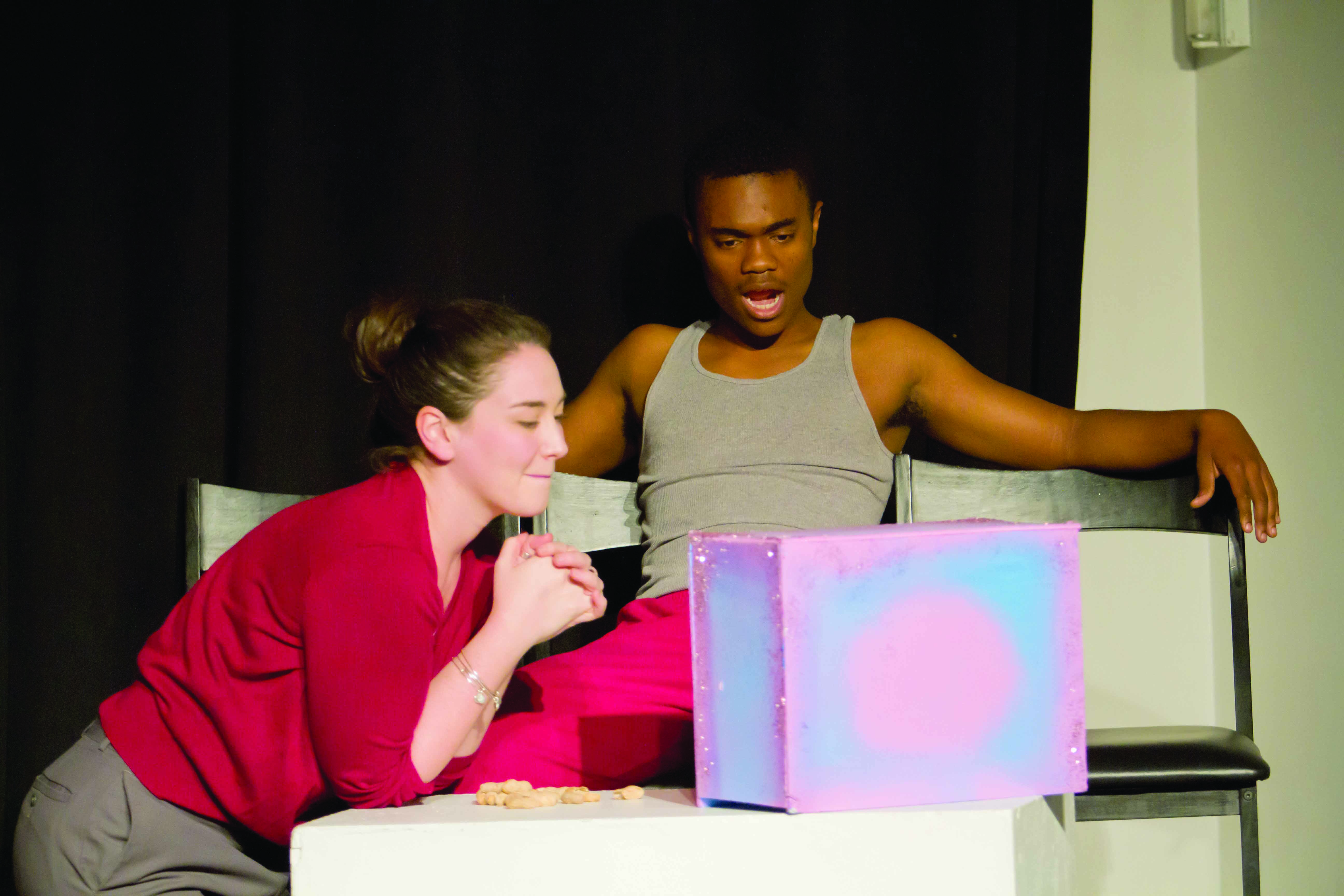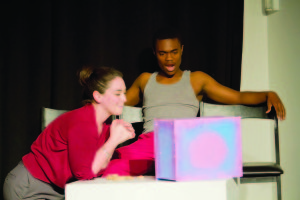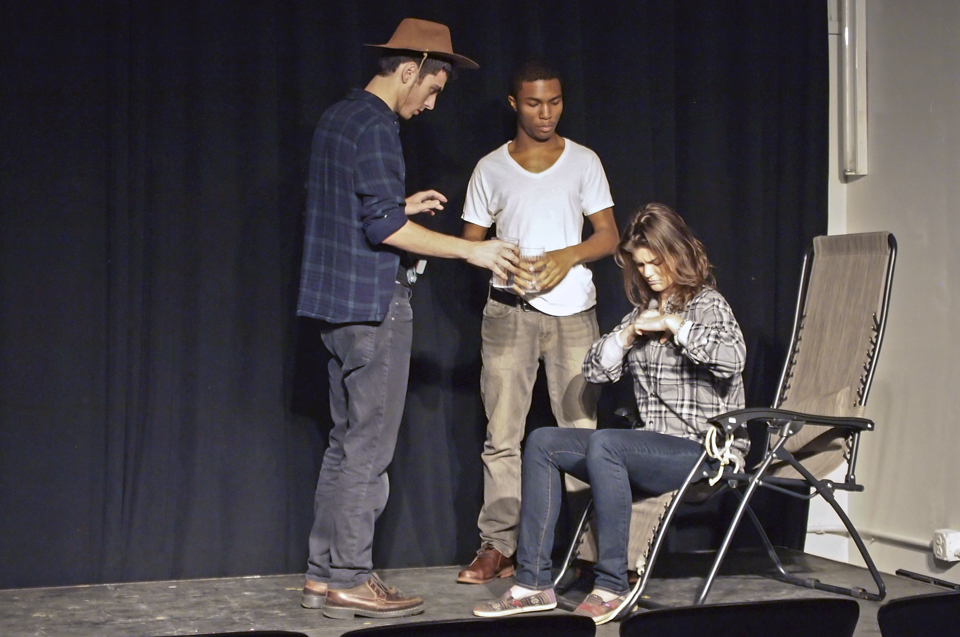
By: Sam Fatula | A&E Editor
On Friday evening nearing 8 p.m., the barren and plain studio that resides on the corner of Ninth Street and Exchange Way in the Cultural District was crammed with an anticipating audience awaiting never-before-seen plays, otherwise known as the Future Ten 11 Play Festival.
The Festival, which promotes up-and-coming directors and producers in the drama and comedy genre, selected ten unique productions out of the approximate 300 scripts submitted months ago to be performed by local, prospective talent. Although each play lasted just 10 minutes, the quality of each script in conjunction with the raw talent that Pittsburgh continues to produce left the group of attendees on Friday wanting more.

Starting off the evening was the simple production titled First Rites, written by Joanna Piucci. Although the Festival placed an emphasis on comedy prior to the beginning of the show, First Rites had a slightly more serious tone, which covered the topic of independence and self-worth. Actor Matthew Russak played a self-conscious, young adult, unsure of his capabilities and how he would fit into society, but was aided into being more confident about himself by fellow character, Elizabeth Farina. Even though First Rites did not have the audience laughing hysterically, it was a nice way of easing the crowd into the following production which had a more extreme tone.
Proposition 324 was the next production during act one and arguably had some of the best one-liners of the evening. The standout performance definitely went to Eric Matthews, who took on the character of Gary, one of three zombie roommates looking for social equality in an anti-zombie community. Matthews also contributed his talents to a couple of other plays later on in the evening, including infomercial comedy Panacea, parody driven drama Talkback starring William Shakespeare and a small cameo in the ironic ‘bathroom joke’ play Pee Buddies.
In comparison to the first act of Future Ten 11, the second act did not seem to deliver as much comedic power. Sure, Pee Buddies had the majority of the audience in tears, but on some occasions, it didn’t live up to the first half predecessor. Probably the weakest point in the evening in terms of holding the viewers’ attention was Savage Lands, written by Timothy Ruppert. The production focused in on two sisters writing as pen pals during the 1700s. Although the back-and-forth banter during each letter had some comical elements, not much of the dialogue was too memorable, which is problematic given its ten-minute duration.
In addition, the final play that was performed called The Writer was slightly disappointing. The interesting concept of having an anonymous source control the actions of a couple sitting in a coffee shop sounded like one of the initial choices to be the best play of the night, but did not deliver how it should have. While the acting was solid from Leon Schendener and Maggine Boone, the script was lackluster.
Following The Writer’s performance to conclude the festivities, audience members were given a ballot to choose their favorite play of the evening. Standouts from the night would have to include the clever and captivating murder-plot comedy Greener Grass and surprisingly serious romantic comedy If We Knew Then, which possessed one of the top acting performances of the night from Moira Quigley. Quigley, who played the fiancee of actor Christian Strange, urged her significant other to participate in a game that rated the couple’s compatibility. After an unsuccessful trial run, although humorous, the tone changes to a more serious one. The pair’s voices continued to escalate throughout the production, only to be resolved by the amount of love they have for each other. It is the most serious play in the Festival, however it is very well-written.
Voting continues through the Festival’s final day on Nov. 2, so it’s not too late to view some of Pittsburgh’s top script writing and especially their acting.


